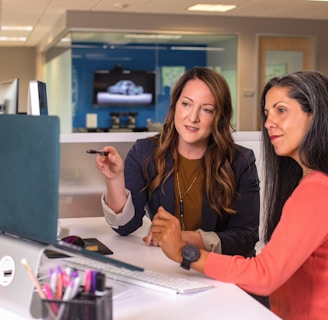Follow-Up Tips After a Trip
Master the art of post-trip follow-ups! Learn practical tips to boost client loyalty, enhance future trips, and build your travel agency’s reputation. Transform one-time travelers into lifelong advocates!
12/7/20243 min read


The end of a trip doesn’t have to mark the end of the relationship between a travel agent and their client. Following up after a trip can transform satisfied customers into lifelong advocates, foster loyalty, and ensure continuous improvement in service quality. This guide explores practical follow-up strategies, the psychology behind them, and their benefits to both travel agents and clients.
Section 1: Why Follow-Up Matters
Building Long-Term Relationships
Trust and Connection: Checking in post-trip shows clients you care about their experiences and well-being, creating a foundation of trust.
Loyalty Over Time: Regular follow-ups strengthen emotional connections, increasing the likelihood of repeat business.
Referrals: Happy clients are more inclined to recommend your services to friends and family.
Continuous Improvement for Travel Agents
Insightful Feedback: Honest client reviews highlight areas for improvement, from itinerary design to partnerships with local vendors.
Tailored Future Trips: Understanding what clients loved or didn’t enjoy helps craft better-suited trips next time.
Enhanced Customer Satisfaction
Unresolved Issues: Addressing any minor post-trip concerns ensures they don’t tarnish the overall experience.
Value-Added Service: Personal follow-ups go above and beyond, leaving clients with a positive impression of your professionalism.
Section 2: When and How to Follow Up
Timing is Key
Immediate Gratitude: Send a thank-you email within 24 hours of their return.
Detailed Feedback Request: Two to three days later, follow up with a detailed survey or phone call.
Periodic Check-Ins: Stay on their radar by reaching out around significant milestones, such as the anniversary of their trip.
Channels to Use
Email: Best for formal communication and sharing post-trip surveys or photos.
Phone Calls: Adds a personal touch for loyal clients or resolving potential issues.
Social Media Engagement: Comment on or share clients’ travel photos to subtly maintain contact.
Postcards or Gifts: Sending a small token of appreciation like a handwritten note can leave a lasting impression.
Section 3: What to Include in Your Follow-Up
Express Gratitude
Sincere Thanks: Start your communication by expressing genuine appreciation for trusting you with their travel plans.
Request Feedback
Constructive Questions: Ask open-ended questions, such as:
What was the highlight of your trip?
Was there anything you wish had been different?
How would you rate your overall experience?
Showcase Care and Attention
Personalized Notes: Reference specific details from their trip to show you were attentive.
Action-Oriented Offers: Mention you’ve noted their feedback and will keep it in mind for future trips.
Suggest Future Opportunities
Inspirational Content: Share ideas for future trips based on their preferences.
Exclusive Offers: Provide tailored discounts or early access to new packages.
Section 4: How Follow-Ups Benefit Travel Agents
Improved Client Retention
Satisfied clients who feel valued are more likely to book through you again.
Enhanced Marketing Through Word of Mouth
Clients who feel heard and cared for naturally recommend your services. This organic marketing is invaluable.
Opportunities for Upselling
A well-timed follow-up email can include suggestions for upcoming destinations, exclusive deals, or add-on services.
Building a Reputation for Excellence
Following up solidifies your professional image and builds a reputation as a travel agent who truly cares.
Section 5: How Follow-Ups Benefit Travelers
Resolution of Concerns
Clients can voice any post-trip issues they might have been hesitant to bring up during the trip.
Enhanced Future Trips
Sharing preferences and dislikes ensures future travel experiences are more tailored.
Emotional Closure
Receiving acknowledgment from the travel agent helps clients fully process and appreciate their journey.
Staying Inspired
Post-trip check-ins that include suggestions for new adventures keep the excitement for travel alive.
Conclusion
The art of following up after a trip is more than just a professional courtesy—it’s a powerful tool for fostering loyalty, enhancing client satisfaction, and ensuring continual growth for travel agents. By implementing thoughtful follow-up strategies, agents can turn one-time customers into lifelong advocates while creating better experiences for all involved.
